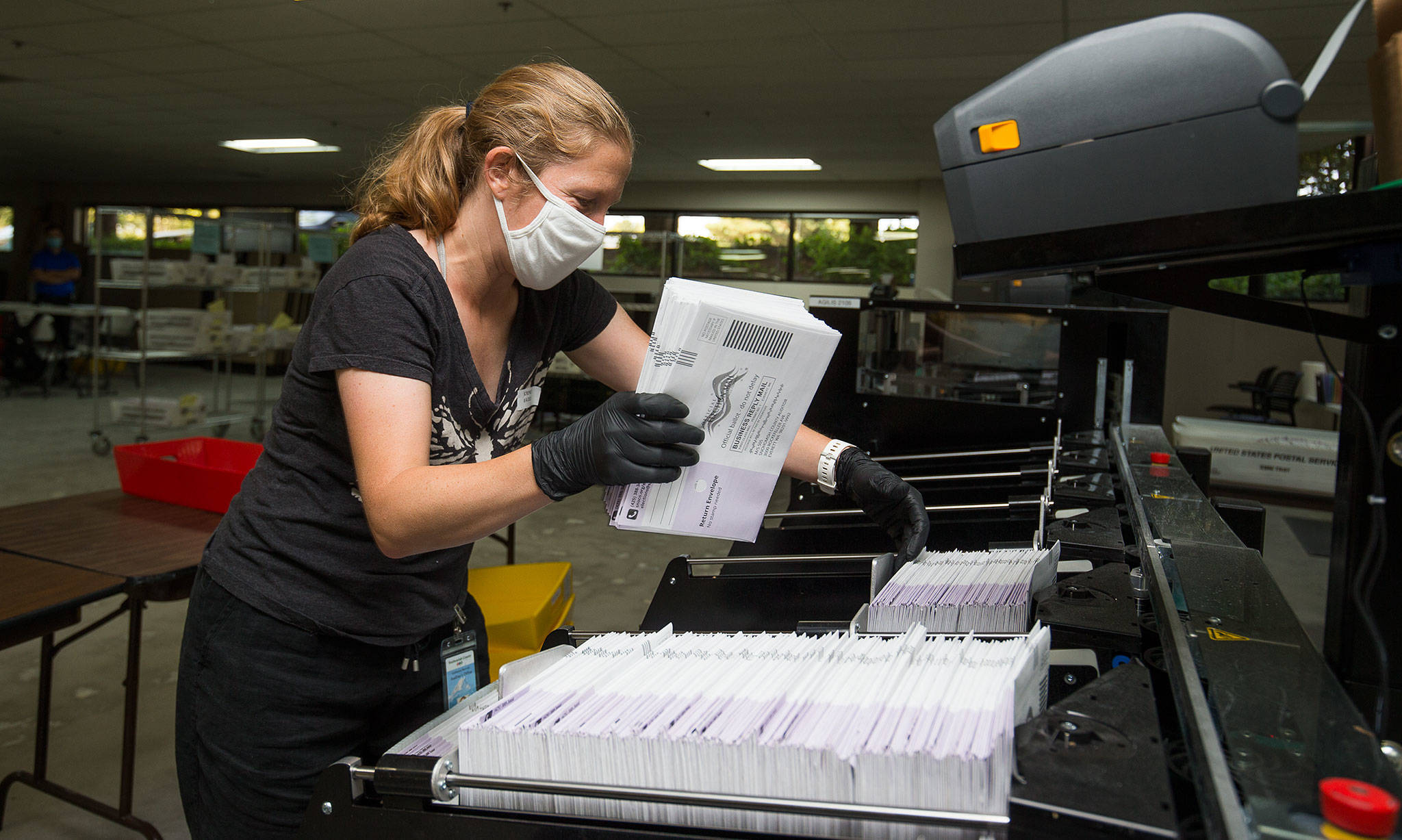By The Herald Editorial Board
By the numbers alone, the 2020 general election in Snohomish County — and throughout Washington state — was a success.
In Snohomish County, 441,921 of the county’s 518,878 registered voters — 85.17 percent — cast ballots. The statewide turnout was only slightly lower; 84.14 percent of the state’s 4.8 million registered voters returned their ballots. For the county, the total number of voters and those registered has never been higher, and the turnout has been rivaled only once in recent years by the 87 percent who voted in the 2008 general election.
Those numbers are marked improvements over past years, including in 2016 when just under 79 percent of county voters participated and far improved over off-year elections in 2019 and 2017 with participation of 43 percent and 33 percent of those able to vote, respectively. The 2017 general election four years ago, by the way, featured races for mayors, city councils, school boards and other local races in Snohomish County, as it will this year, decisions not as monumental as a presidential race but still vital to effective local government.
State and local election officials have worked for years to encourage those eligible not just to register to vote but to vote and participate in one of the most basic functions of our representative democracy. The trick this year will be to encourage as many among last November’s voters to return their ballots this year during upcoming special elections, the Aug. 3 primary and the Nov. 2 general election.
Which is why state lawmakers should remove a particular obstacle for voters from general election ballots, this year and in the future: so-called advisory votes related to tax increases adopted by the state Legislature. The advisory measures, on statewide ballots since 2008, ask voters if they want to see specific tax increases, adopted by the Legislature, maintained or repealed.
You can’t miss them. The advisory measures are among the first items on every ballot, joining legitimate initiatives, referendums and resolutions. The difference, however, is that the advisory measures are nonbinding, requiring no action by lawmakers — and coming after the fact of the legislation’s passage — aren’t really advising anyone of anything. They’re basically push polls. And not very useful ones at that.
There were four on November’s ballot, and in each a majority of voters — provided only scant information about the specific tax increase — sided with repeal. The ballot advisory measures state only the most basic information on what’s being taxed, for how long and how much would be raised. No context is provided, even to how any revenue raised would be used.
For example, this year Advisory Vote No. 35, asked about an increase “to the business and occupation tax on manufacturers of commercial airplanes,” levying taxes of more than $1 billion in its first ten years. The 54.5 percent voting for repeal may have reasoned that $1 billion was just too much to levy against an important industry that employs so many in the state.
But here’s what many voters likely did not know: The legislation involved, Senate Bill 6690, was adopted by bipartisan margins in the House and Senate at the request of Boeing, which sought repeal of aerospace tax breaks that had been at the center of an international trade dispute.
The ballot, with its limited space, provided no context for the “tax increase,” only that it had been adopted “without a vote of the people.”
There wasn’t much explanation to be found in the state’s voters guide either. Initiative 960, adopted in 2007, limits what can be published on the ballot and in the voters guide. Those seeking more information on the advisory measures in the voters guide will find the ballot title, a chart of what the revenue raised for the next ten years, a record of the votes in the Legislature and a listing of how each state lawmaker voted on the tax measures.
Yet supporters of the advisory measures maintain that they hold lawmakers accountable and educate voters. Neither is the case. They are a waste of space on ballots and in the voters guides, forcing other important issues and races off the first page of the ballot and fooling some voters into thinking they’re helping to guide the state’s tax policy.
State Sen. Patty Kuderer, D-Bellevue, again has proposed legislation to remove the “advisory” votes from the ballot, but her bill, SB 5182, also would more effectively use the state voters guide to publish useful context and information about the Legislature’s actions to increase and decrease revenue through taxes and fees and explain how revenue would be used or expenditures eliminated, along with a pie chart of operating budget spending for the most recent two-year period.
That information wouldn’t be tied to any specific ballot measure; it would use the state voters guide as a handy way to provide that information to voters. There’s a debate to be had as to whether such a use of the voters guide and the expense involved is justified when there are newspapers and other news media already providing that information.
But there’s no convincing argument to be made to continue to allow ballots and elections to be used for polling — and propaganda for anti-tax activists, conveniently paid for by taxpayers — that provides no useful information to lawmakers, can mislead voters and clutters up ballots that should be reserved for actual issues and races that require voters’ full attention.
Talk to us
> Give us your news tips.
> Send us a letter to the editor.
> More Herald contact information.

























